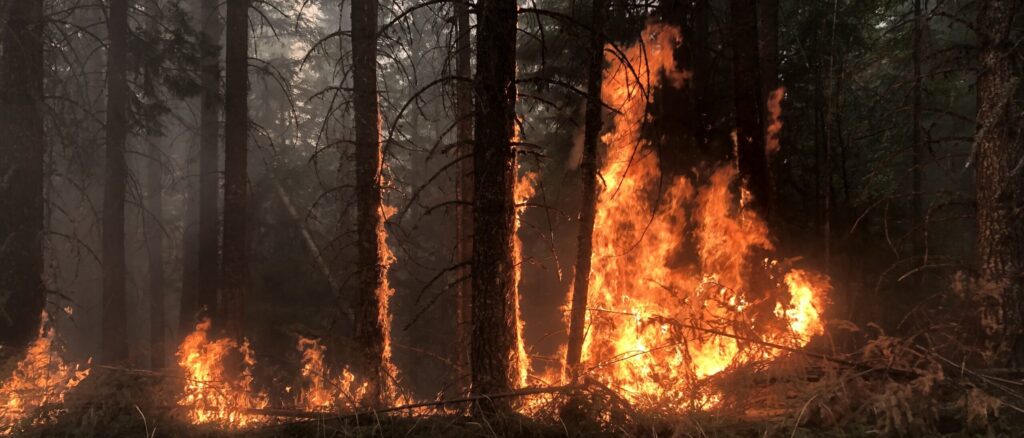**This opinion originally appeared in the Portland Tribune
Kyle Williams Feb 16, 2024
It has been frustrating to read the incomplete media coverage on Sen. Elizabeth Steiner’s wildfire funding bill (House Bill 4133). While salacious headlines get clicks, the actual story is less scandalous.
Here’s the less exciting version: the bill comes from a work group I participated in led by Sen. Steiner. It consisted of six different size and type of landowners (conservation, tribal, ranchland, county, and large and small forestland) who directly pay taxes to fund the Oregon Department of Forestry’s (ODF) wildfire fighting costs. The goal was to address an affordability crisis related to the growing costs of wildfire.
We can all agree wildfires are increasingly affecting our health, economy, quality of living and, worse, costing lives and burning whole communities.
And while that’s a huge problem, it’s not one caused by private landowners who help fund ODF’s system. The vast majority (over three-quarters) of fires that put smoke into the air and threaten communities start on federal land, not land protected by ODF. But Oregon’s landowners and ODF spend firefighting money preventing those fires that start on federal land from spreading to private land and communities.Clearly, wildfire is an all-Oregonian problem and needs an all-Oregonian solution.
That was one of the principles of Sen. Steiner’s work group. The goal was to address increased costs from a 2021 bill that directed several million dollars in ODF investment to boost their ability to fight wildfire. That meant those landowners’ taxes went up — more than 40% in some cases. For several ranchers and small forestland owners, that increase threatened to put them out of business.
Oregon’s wildfire funding structure is the most complicated in the nation. In the simplest of terms, the system is funded roughly half by the General Fund (all Oregon taxpayers) and half by rural landowners (forestland, ranchland, etc.) Fortunately, the system itself is also the most effective in the nation — ODF puts out roughly 96% of fires on the land it protects at 10 acres or less.
Sen. Steiner did something no other legislator has done — she invested the time, and pulled in the right experts, to fully understand the system. And then she helped the group develop a fair proposal that worked for everyone involved.
It did two things: slightly increased taxes that landowners pay and redirected them so local dollars will be paying for local firefighters — and it asked the General Fund to pay for ODF’s statewide administrative costs to match how all other state agencies are funded. As a result, all landowner rates — not just large private forestland owners — went down a little (enough to keep folks from going broke) and the General Fund contribution went up a little, partly in recognition that all Oregonians should pitch in a little more to protect our air and communities.
An initial idea would have brought in additional money for the General Fund: asking all property owners (not just those whose land ODF protects) to pay $10 per year. That idea got dropped before the bill was introduced, which means the landowners will need to increase their contribution fill that gap.
Earlier this February, Legislators learned they have $560 million more to work with than anticipated, so asking the General Fund to pay a bit more for statewide services doesn’t seem out of the picture.
Also incomplete in the reporting was the comparison between how much Oregon forestland owners pay for firefighting compared to Washington. It is true that Oregon landowners directly pay more for fire protection than in any other state. It is also true that Washington landowners pay different taxes into their General Fund than in Oregon. So do Oregon landowners — we pay more for family medical leave and pay corporate excise and income taxes that Washington doesn’t pay. When one considers the entire tax burden on the sector instead of only narrowly looking at one part, the contributions in each state are very similar. And Oregon’s contributions may be greater now due to an increase just last year in the Forest Products Harvest Tax as a result of the Private Forest Accord and an increase in fire cost burden resulting from that omnibus wildfire bill passed in 2021.
We hope common sense Oregonians are willing to look beyond the attention-grabbing headlines and listen to the real story, which can be found on the most recent episode of the Forestry Smart Policy podcast, where Sen. Steiner explains the origins and process of the work group.
Kyle Williams of Albany is the director of Forest Protection for the Oregon Forest Industries Council and has more than 20 years of experience working in the fire protection system throughout Oregon on both private and public forestland.

